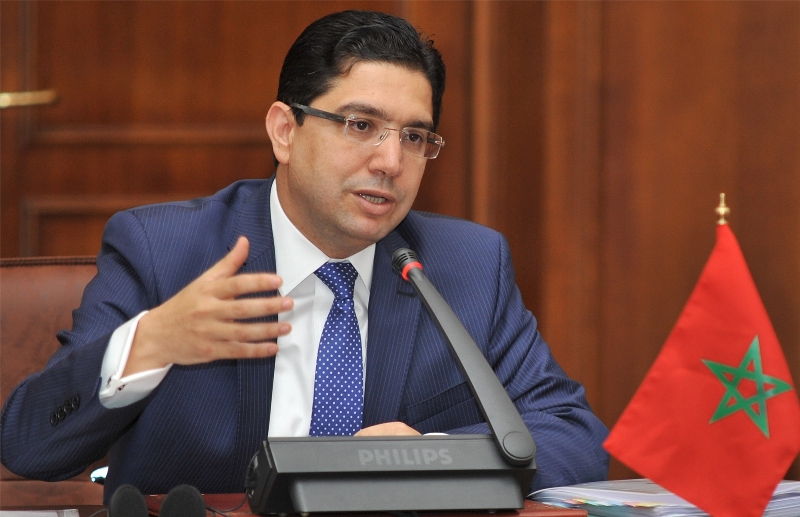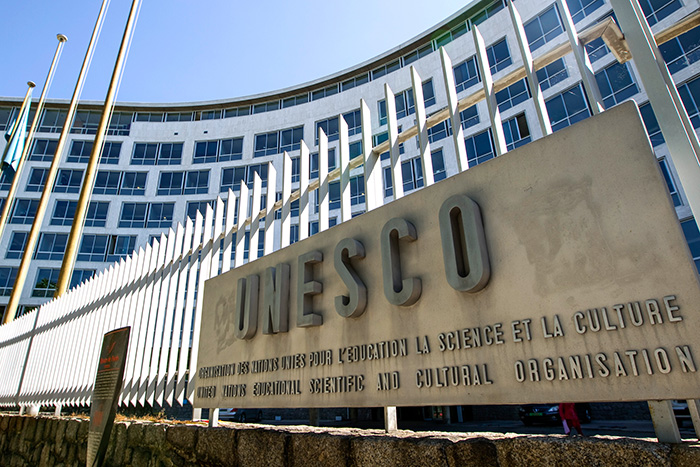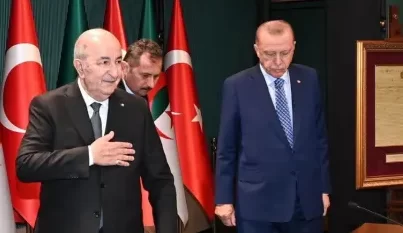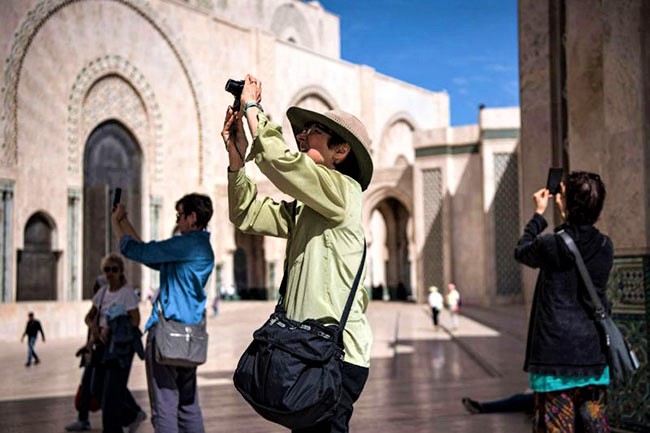The Kingdom of Morocco proposes the creation of an Economic Forum of the Community of Sahel-Saharan States (CEN-SAD), said Minister of Foreign Affairs, African Cooperation and Moroccans Abroad, Nasser Bourita, last Tuesday in Rabat.
This Economic Forum "would complement the architecture of our organization in terms of development, and serve as a platform for exchange and cooperation between economic operators in our space," said Bourita at the preparatory meeting for the 21st Ordinary Session of the CEN-SAD Executive Council.
"Morocco proposes to host the first edition," he added.
As part of the vision outlined by HM King Mohammed VI, Morocco has always relied on investment more than trade, and worked for the construction of partnerships promoting prosperity and stability shared with its Sahelian brothers, said the minister.
He recalled the speech of HM the King in which the Sovereign stressed that "Morocco believes in a co-development based on intra-African cooperation and economic complementarity, on active solidarity and on the pooling of resources and efforts."
The CEN-SAD is a real miniature of Africa - in its richness, diversity and challenges, the Minister noted, explaining that this continent has a significant potential to assert itself as a dynamic region, producing added value and able to share the socio-economic challenges of its members.
But despite its potential, the CEN-SAD struggles to reach its cruising speed, and to be the catalyst of stability and shared prosperity to which its people aspire, said Bourita, arguing that the region continues to perform below its capacity in several areas of the UN 2030 Agenda and the AU 2063 Agenda.
"That is why our efforts must tend to make our Community emerge as a melting pot of our collective efforts, by advancing our grouping towards a real regional integration," he further insisted
CEN-SAD action should, in the coming years, tend towards the establishment of various institutional structures provided for by the revised CEN-SAD treaty, including the Permanent Council in charge of Sustainable Development, Bourita said.
It should also tend to the development of a strategy dedicated to human development in the Sahel-Saharan space, in addition to programs for the integration of youth and the operationalization of CEN-SAD's Strategy for Security and Development (2015-2050).
In addition, Bourita stressed that the Kingdom of Morocco will continue its commitment to work for the construction of the Sahel-Saharan space, by maintaining fraternal relations with all member countries, based on cooperation, solidarity and respect for their sovereignty and territorial integrity.
This event constitutes the first presential meeting of the Executive Council, since its ordinary session in Khartoum held on March 12, 2014, he said, adding that "if the COVID-19 pandemic and its recurrent outbreaks have, unfortunately, imposed their constraints on us, they have in no way affected our commitment to CEN-SAD, nor our determination to give a new impetus to its work."
"Today more than ever, the functioning of our Organization must be placed under the sign of solidarity and efficiency, with a view to its active participation in upcoming continental events, including the next AU-ECR Coordination Meeting," the Minister noted.
Morocco notes with satisfaction and hope that, thanks to the collective will and sense of responsibility of Member States, CEN-SAD is gradually regaining its momentum, he said.
The five-year plan of "our Organization, developed by the Secretariat following the Extraordinary Conference of Heads of State and Government held in N'Djamena, April 13, 2019, is examined favorably in the prism of a contribution to the realization of the objectives of CEN-SAD and its Security and Development Strategy (SDS)."
However, the end of the pandemic crisis and developments in the regional, continental and global contexts, "call us to maintain constant support to our Organization" and also to optimize the role it can play, he pointed out.
Bourita said that this requires four prerequisites, namely the restoration of a normal pace of work of the governing bodies of CEN-SAD because its role as a lever for regional development is dependent on its internal dynamism and its ability to meet the challenges of the region, alongside ECOWAS, the Economic Community of Central African States, and the G5-Sahel.
The second prerequisite is to complete and operationalize the architecture of the Organization by setting up the new bodies provided for in the Revised Treaty, in particular the Committee of Ambassadors and Permanent Representatives, the Permanent Council for Sustainable Development, the Permanent Council for Peace and Security, and the Center for Combating Terrorism, whose work must be revived.
On this occasion, Bourita proposed the establishment of a coordination group of CEN-SAD countries that are members of the African Union's PSC, noting that this mechanism would be very useful for coordinating the monitoring and defense of the priorities dear to CEN-SAD in terms of peace and security.
The third prerequisite is to strengthen the capacity of the Executive Secretariat, the Minister noted.
"We can only congratulate the members of the Secretariat, who are doing so much with so few resources," he said, adding that it was necessary to provide reinforcements in terms of competent human resources, expertise and means, "if we want a Secretariat that is able to deploy the full extent of its efficiency."
He called, in this regard, to rethink the policy of the Sahel-Saharan Bank for Investment and Trade, noting that this strategic institution, must accompany the efforts of the Community in the areas of Development and its relationship with potential investors in this area.
Bourita deplored the fact that "the security issue is raised every time we talk about the Sahel", noting that "in the space of a decade, our region has become not only a place of return and redeployment of foreign fighters, but also a space producing terrorist groups."
The Sahel remains, unfortunately, the world's 2nd most affected region by terrorism, said the Minister, arguing that security challenges in "our Sahel-Saharan space are, therefore, not a figure of speech, but a fundamental concern."
In this context, he called on CEN-SAD, more than ever, to accelerate the operationalization of its Peace and Security Council, noting that it also benefits from transforming its Security Services Forum into an Intelligence Committee in the service of peace and security, and to set up a Sahel-Saharan countries' General Staff to fight terrorism and drug trafficking more effectively.
"The strengthening of the capacities of the States of our region, therefore, emerges as a structural necessity," he stressed, recalling in this regard, that the Office of the United Nations Program for Counter-Terrorism, inaugurated in Morocco in June 2021, could provide a certain support.
"The Kingdom will work in close coordination with the CEN-SAD Center for Combating Terrorism. But already, we could put in place a judicial cooperation between the States of the CEN-SAD, as a first coordination action, immediate and zero cost, "said Bourita.
He solemnly reiterated the constant commitment of the Kingdom of Morocco to give a new impetus to the CEN-SAD, as a Regional Economic Community of the African Union, calling for the strengthening of its action for peace, stability and development of the Sahel-Saharan space.
"Our greatest challenge is to offer our populations better living conditions in a space of security and prosperity. Let us unite for the good of our peoples and our continent, Africa," he concluded.






